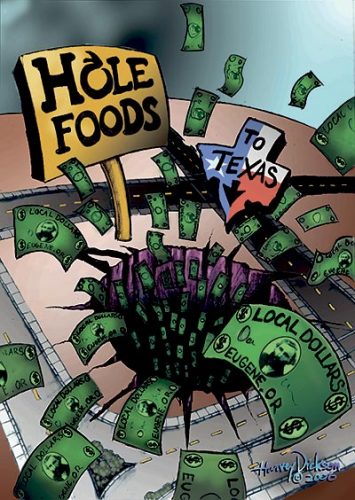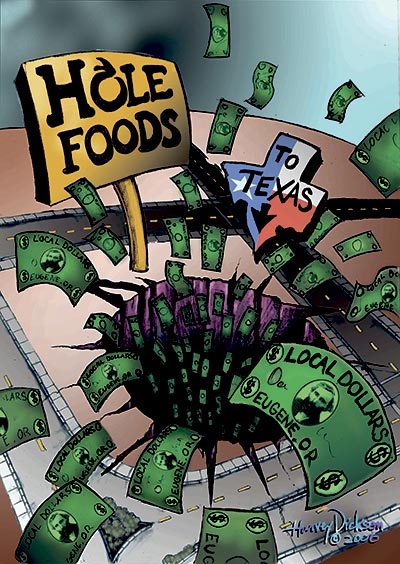
• Eugene’s Multi-Unit Property Tax Exemption (MUPTE) was portrayed in a public forum this week as the salvation for downtown, both past and future, even though MUPTE has had a much bigger impact on the West University area than it has had on downtown. The 10-year property tax breaks have helped build The Tate (condos for wealthy people) and Capstone’s 13th and Olive (a fortress for students with parking for 1,000 cars) and a few others, but the revitalization of downtown has had more to do with public-private partnerships to fill ugly holes and renovate old commercial buildings, city loans for businesses, moving city offices downtown and Oregon’s economic recovery. One thing that was clear in the forum is that if MUPTE is revived after its two-year hiatus, it must not include more student housing downtown, and it needs to be revised, restricted and better managed from the beginning through the entire 10 years of tax breaks.
Eugene has a serious lack of affordable housing. Councilor George Brown wants a “workforce” housing requirement to be included in future MUPTE projects, noting that 40 percent of Eugene households were “rent burdened” (spending more than 30 percent of income on housing), when he took office six-plus years ago. Today 60 percent of Eugeneans are rent burdened. It’s an uphill battle. The Eugene Area Chamber of Commerce is advocating for fewer restrictions. MUPTE supporters organized the forum at The Barn Light June 8 in advance of a Eugene City Council public hearing on MUPTE revisions that begins at 7:30 pm Monday, June 15.

• The groundbreaking for Whole Foods Market in Eugene reminds us of a cover story we did back in 2006 when Texas-based Whole Foods was proposing to build on the same site and wanted $9 million in subsidies for land and parking (see wkly.ws/210). Whole Foods is now back, without a demand for subsidies (take note, MUPTE supporters). The huge store will create jobs downtown and generate big retail sales, but small, independent grocers are likely to suffer. People can only consume so many organic carrots and bags of granola. And as our 2006 cover image drawn by Harvey Dickson so well illustrates, the profits will get sucked out of Lane County, as with other national chain stores. Small, independent grocers can survive — with the help of loyal customers.
As a corporation, Whole Foods gets mixed reviews. The chain of 420 stores in the U.S. and Europe, which generated $12.9 billion in revenues in 2013, tends to pay employees well and is relatively “green,” but CEO John Mackey is an anti-union libertarian who has spoken out publicly against universal health care, including Obamacare.
• A little bragging, and a follow-up to our May 21 Slant: If you pull up the last segment of Vice, the gutsy national hard news investigation program on HBO, you’ll see a Eugene Weekly cover along with major media in a story about campus sexual violence. Trask Bedortha of our art department designed the cover, a basketball with “Win, Drink, Rape” headlined across it. The story only mentions the UO in passing. See an image on our blog.
• Oregon’s improving economy has well outstripped state tax revenue projections, which is great, but Oregon has a peculiar anti-tax law that requires the Legislature to declare a tax “kicker.” In this situation, a rebate of $473 million is expected to show up as a credit on next year’s individual tax returns. Other states wisely use unexpected revenues for rainy day funds or education support. The Oregon Legislature has the power to divert that $473 million to reserves and education through House Bill 3555. The bill is in the House Committee on Revenue this week, but the clock is ticking. An online petition supporting the bill can be found at wkly.ws/211.